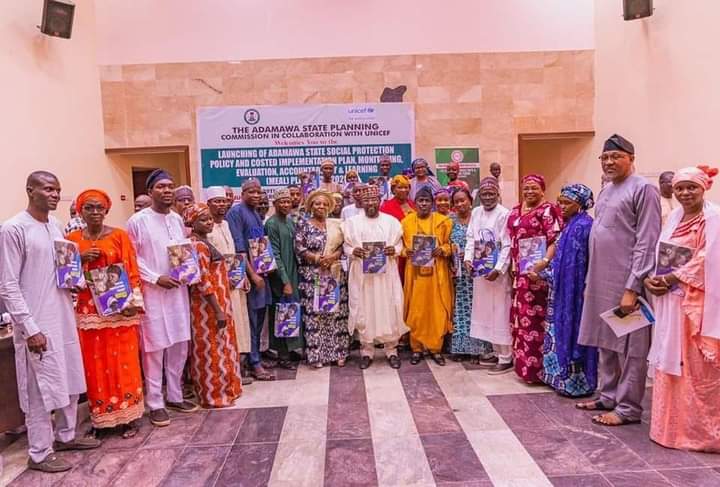Governor Ahmadu Umaru Fintiri of Adamawa State disclosed that over 2.1 million residents, including 218,000 Internally Displaced Persons (IDPs), are in critical need of social services. This announcement came during the launch of the Adamawa State Social Protection Policy at the Nyako Training Center in Yola, highlighting the urgent demand for social support driven by climate challenges, past conflicts, and the region’s history of insurgency.
Represented by State Commissioner for Reconstruction, Rehabilitation, and Resettlement, Hamman Bello Diram, Fintiri shared that the new policy aims to enhance welfare, security, and resilience for the people of Adamawa. The initiative targets reducing poverty and addressing socioeconomic inequalities across the state.
According to Fintiri, “The policy’s goal is to uplift Adamawa residents, helping them overcome poverty and improving well-being by addressing social and economic disparities.” He acknowledged the added strain on low-income families following fuel subsidy removal, further impacting their ability to meet essential needs.
The Adamawa State Social Protection Policy aligns with both the 2020-2025 Adamawa Development Plan and the United Nations Sustainable Development Goals (SDGs). Governor Fintiri emphasized the importance of the policy’s cost implementation plan, designed to prioritize social service delivery in sectors like healthcare, education, security, agriculture, and skill acquisition.
Read also: Ensuring Delta’s Business Success: Senator Dafinone Hosts BoI Workshop To Empower MSMEs
Executive Chairman of the Adamawa State Planning Commission, Mary Paninga, highlighted the six-month collaborative effort that shaped the policy, supported by Fintiri, the Head of Service, UNICEF, and a technical working group. She stressed that this document serves as a foundation for advancing social protection across Adamawa.
Director General of the Poverty Alleviation and Wealth Creation Agency (PAWECA), Michael Zira, echoed the significance of the policy, detailing PAWECA’s role in poverty reduction and skill-building initiatives to foster self-reliance. Zira affirmed the agency’s commitment to collaborating with other organizations dedicated to poverty alleviation and sustainable development in the region.
The Social Protection Policy tackles 24 core measures across eight critical sectors, positioning Adamawa to address long-standing social challenges and secure a stable future for its citizens.






